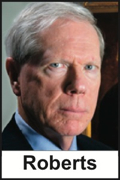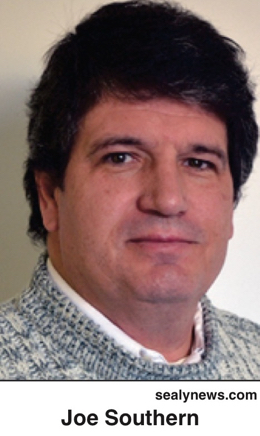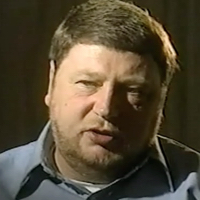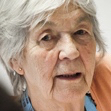Rascals case in brief
In the beginning, in 1989, more than 90 children at the Little Rascals Day Care Center in Edenton, North Carolina, accused a total of 20 adults with 429 instances of sexual abuse over a three-year period. It may have all begun with one parent’s complaint about punishment given her child.
Among the alleged perpetrators: the sheriff and mayor. But prosecutors would charge only Robin Byrum, Darlene Harris, Elizabeth “Betsy” Kelly, Robert “Bob” Kelly, Willard Scott Privott, Shelley Stone and Dawn Wilson – the Edenton 7.
Along with sodomy and beatings, allegations included a baby killed with a handgun, a child being hung upside down from a tree and being set on fire and countless other fantastic incidents involving spaceships, hot air balloons, pirate ships and trained sharks.
By the time prosecutors dropped the last charges in 1997, Little Rascals had become North Carolina’s longest and most costly criminal trial. Prosecutors kept defendants jailed in hopes at least one would turn against their supposed co-conspirators. Remarkably, none did. Another shameful record: Five defendants had to wait longer to face their accusers in court than anyone else in North Carolina history.
Between 1991 and 1997, Ofra Bikel produced three extraordinary episodes on the Little Rascals case for the PBS series “Frontline.” Although “Innocence Lost” did not deter prosecutors, it exposed their tactics and fostered nationwide skepticism and dismay.
With each passing year, the absurdity of the Little Rascals charges has become more obvious. But no admission of error has ever come from prosecutors, police, interviewers or parents. This site is devoted to the issues raised by this case.
On Facebook
Click for earlier Facebook posts archived on this site
Click to go to
Today’s random selection from the Little Rascals Day Care archives….
Click for earlier Facebook posts archived on this site
Click to go to
Today’s random selection from the Little Rascals Day Care archives….
Did prosecutors sell out for name recognition?
 Nov. 12, 2012
Nov. 12, 2012
“It is not conceivable that any of the prosecutors (in cases such as Little Rascals) believed a word of the charges responsible for ruining the lives of so many people. The cases were brought for one reason alone: to gain name recognition for the prosecutors.”
– From “The Tyranny of Good Intentions: How Prosecutors and Bureaucrats Are Trampling the Constitution in the Name of Justice” by Paul Craig Roberts and Lawrence M. Stratton (2008)
Could prosecutors really have sold their souls (not to mention their public trust) for mere “name recognition”? Or did their lust for guilty verdicts blind them to the obvious?
Most days, the latter seems more likely to me. Or perhaps a hybrid….
Indisputably, however, career benefits did attach to trumpeting from the courthouse steps that you’ve sent away Bob Kelly for 12 consecutive life sentences.
How one young reporter changed his mind
 Nov. 8, 2014
Nov. 8, 2014
“In the summer of 1989, I accepted my first job at a daily paper when The Daily Advance hired me to cover a two-county beat – Chowan and Perquimans. When I arrived, Bob Kelly had just been arrested and charged in about a dozen cases. My editor told me about it, almost in passing, and said, ‘You might want to keep an eye on it.’ I did, and for the next two years it consumed my life.
“I was 24 years old with a wife of two years and no children. I had no experience reporting on police and courts and was very naive as to how the system worked. As the case expanded I became convinced of the defendants’ guilt. Their lawyers wouldn’t let them talk and they were hard to reach in jail. Prosecutors were also tight-lipped, but some of the parents couldn’t stay that way.
“For two years all I had to go on were the stories of parents and what I believed to be a mountain of evidence in the hands of prosecutors. Shortly before Bob’s trial began, three important things happened. I finally got to interview two of the defendants (Robin Byrum and Scott Privott). Their stories were very convincing and I was no longer certain of their guilt. I was also promoted to an editing position and was no longer actively reporting on the case. I was in charge of the reporters who would. Also at this time the ‘Frontline’ show came out, pretty much blowing the lid off the prosecution’s case.
“As Bob Kelly’s trial unfolded, I found that the prosecution had little to no evidence. My faith in the case was weakened and I was surprised when Bob was convicted. Then another defendant (Dawn Wilson) fell and Bob’s wife Betsy Kelly pleaded no contest. That upset me because I was convinced she was innocent and I wanted her to fight and prove it.
“At this point in my life, I had become a parent and soon my first marriage would end. I returned home to Colorado but continued to follow the case from afar. I was happy when the convictions were overthrown and the other charges dropped. As a parent I could now see and understand that what was normal childhood behavior was being grossly misinterpreted as signs of child sex abuse.
“In hindsight, I feel bad for everyone involved in the case. Both sides went through hell. Most of all, though, I feel for the children. Their lives were altered and family and community dynamics changed by forces beyond their control and beyond reason.”
– Joe Southern, recalling his experience covering the Little Rascals case for the Elizabeth City Daily Advance
This 1991 piece, reprinted in a Del Rio, Texas, paper, seems to be reporter Southern’s lone Little Rascals story to survive online. He is now managing editor of The Sealy News in Sealy, Texas.
More recently, the Daily Advance has shown far less interest in the case – well, none, actually – or in Nancy Lamb’s responsibility for pursuing and prolonging it.
Kelly’s jury was rife with problems not visible at beginning

pbs.org/wgbh/frontline
Dennis T. Ray
Aug. 19, 2016
The jury is empaneled in Farmville, N.C., where Bob Kelly’s trial has been moved because of pretrial publicity in Edenton.
Dennis T. Ray would turn out to be a major mischief-maker both inside and outside the jury room. Ray read aloud from a contraband Redbook article on how to identify child molesters, disobeyed the court’s instruction not to visit the alleged crime scenes, reported that a jailhouse snitch had shared personal knowledge of Kelly’s guilt and displayed a supposed “magic key” referred to by several child witnesses.
 Unfortunately, Judge Marsh McLelland told defense attorneys he didn’t consider Ray’s rogue behavior – or that of a second juror, who dramatically revealed during deliberations that he himself had been abused as a child – to be a “tremendous problem.”
Unfortunately, Judge Marsh McLelland told defense attorneys he didn’t consider Ray’s rogue behavior – or that of a second juror, who dramatically revealed during deliberations that he himself had been abused as a child – to be a “tremendous problem.”
At least three jurors would later express deep doubts about the guilty verdict.
Roswell Streeter, at 28 the youngest juror, would write:
“I’ll say this to the last day of my life, that the evidence that came through the courtroom did not prove that Bob Kelly committed any kind of sex abuse.” He told “Frontline” he had felt intimidated and confused.
Mary Nichols was suffering from advanced leukemia, and Marvin Shackelford had suffered two heart attacks. Both acknowledged afterward that worries about their health had moved them to vote guilty simply to cut short deliberations and go home. It had been nine months since the trial began.
![]()
Another century, another generation of fake victims

recoveredmemorytherapy.blogspot.com
Jean La Fontaine
Dec. 8, 2015
“It is over 20 years since the rash of allegation that rituals of devil worship, including the sexual abuse of children, the sacrifice, and (sometimes) eating, of animals, children and even babies as well as other extreme acts of depravity were being conducted across the U.K. In 1994 I reported to the Department of Health that in the 84 cases in England and Wales that were the basis of my research, I could find no supporting evidence for the existence of such a satanic cult.
“The allegations have not stopped however, although they no longer get the publicity they used to have as, officially, satanic or ritual abuse no longer exists. It is not mentioned in guidance to social workers on the subject of abuse of children. However, a particularly unpleasant case that occurred in Hampstead in 2014 has recently been widely reported in the press….
“The persistence of these allegations into the 21st century repeats the questions that I thought I had answered at the end of the 20th! This is, first: how is it that ‘victims’ can tell stories of gruesome experiences that they never had? Secondly: how is it that adults, many of them sensible, educated people, believe these stories?….”
– From “Jean La Fontaine on Satanic Ritual Abuse Panic” at the British False Memory Society (Nov. 19)











0 CommentsComment on Facebook